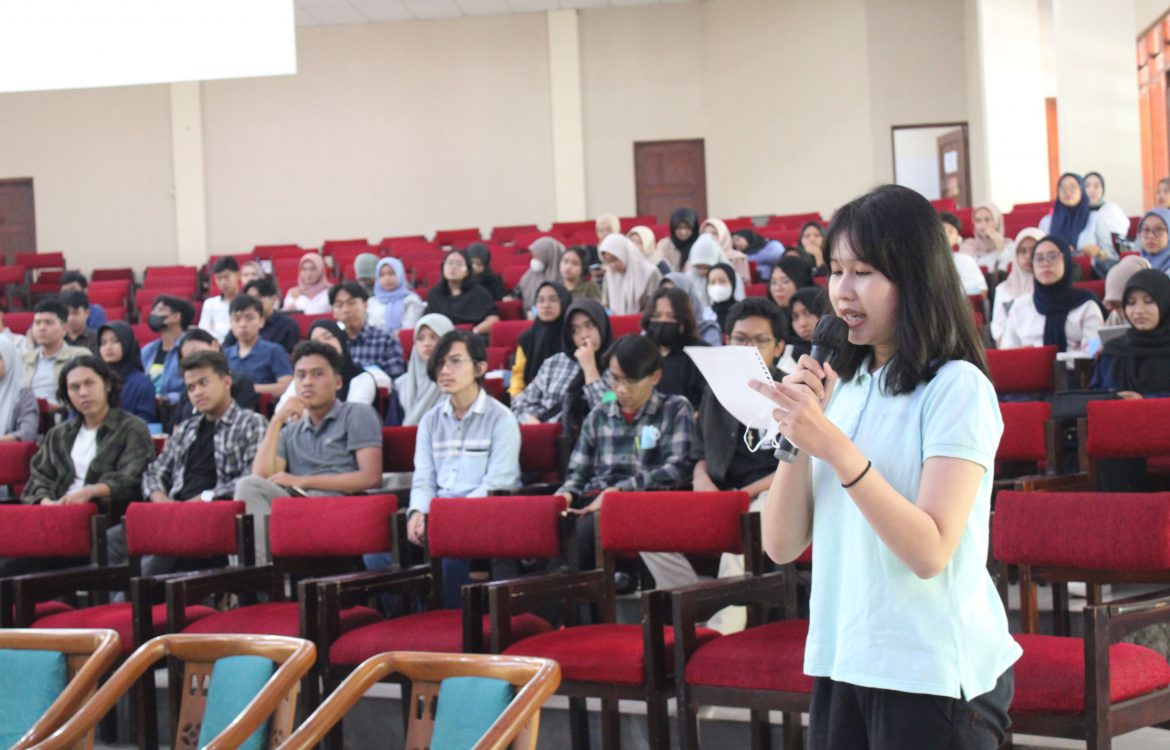
Welcoming New Students on the First Day of College, the Development Economics Study Program (DESP) Invites Guest Lecturers from Universiti Sains Malaysia
On the first day of the August 2023-January 2024 academic session, Monday, 28 August 2023, the Development Economics Study Program (DESP), Faculty of Economics and Business (FEB), Universitas Sebelas Maret (UNS), welcomed new students by hosting a Guest Lecturer inviting Assoc. Prof. Dr. Radij Firdaus Radin Badaruddin from Universiti Sains Malaysia. Additionally, the agenda invited Dr. Suryanto, SE, M.Sc., a Lecturer of the DESP FEB UNS as one of the invited speakers.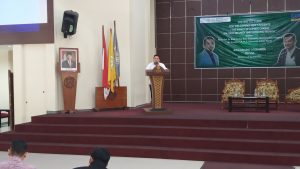
The event held at the Suhardi Building Hall FEB discussed the Impact of Climate Change on Food Security and Economic Growth. Opened by the Head of the DESP FEB UNS, Dr. Bhimo Rizky Samudra, SE. M.Sc. Ph.D., the event was also attended by several lecturers of DESP FEB.
Prof. Radij in his presentation said that climate change has been included in the SDGs, more specifically SDG13, because it is considered as the most significant obstacle to economic growth. This argument is supported by the multitude of evidence showing that climate change directly affects the social, economic, and human development growth in a country.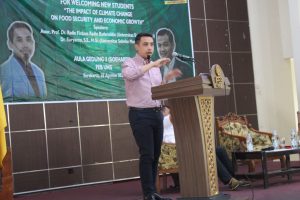
Climate change itself is not a recent natural problem. However, the increase or acceleration of climate change began to occur in the mid-1970s.
On the other hand, some human activities have been shown to have a role in increasing carbon dioxide (CO2) levels. Among many activities, the electricity and agricultural production sectors (including forestry and other land uses) contributed 25% and 24% respectively to the increase in CO2 levels in the world. This increase will bring many negative effects such as the melting of permafrost (eternal snow), rising sea levels, frequent droughts, and extreme weather, to threats to food production. Further, climate change mitigation can be applied through six steps, namely reduce, remove, regulate, put a price, use of government subsidies, and international cooperation.
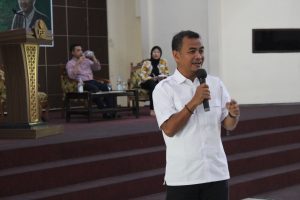 Meanwhile, Dr. Suryanto said Indonesia as an agrarian region was also certainly affected negatively by climate change. According to the records of KLH (2004), examples of climate change are the rise of air temperature and continuous rainfall over a long period of time between 50 to 100 years. The Intergovernmental Panel on Climate Change (IPCC) concluded that global air temperatures have increased 0.6 degrees Celsius (1 degree Fahrenheit) since 1861.
Meanwhile, Dr. Suryanto said Indonesia as an agrarian region was also certainly affected negatively by climate change. According to the records of KLH (2004), examples of climate change are the rise of air temperature and continuous rainfall over a long period of time between 50 to 100 years. The Intergovernmental Panel on Climate Change (IPCC) concluded that global air temperatures have increased 0.6 degrees Celsius (1 degree Fahrenheit) since 1861.
“The increase in temperature from year to year is accelerating, although it may not be felt, but if it is not immediately anticipated, the temperature will get hotter. Maybe it is not you or us who receive the impact, but the next generation who will face a tremendous effect,” he said.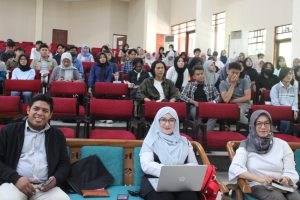
Regarding food security, the problem is not only about food availability but also about accessibility and the choice of healthy food types. Impacts of Climate Change
Broadly speaking, it is mentioned that food security or the impacts of climate change on food security are quite significant. This effect will be greater when our economic activities or economic growth remain using old concepts that are not environmentally friendly, while the environment has a limited capacity and carrying capacity.
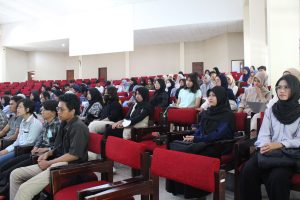 “Just like us, if we are disturbed once, we may withstand it, the second we can withstand it, the third time we can’t withstand it anymore and will get angry. A similar concept applies to the earth, the environment, and how can we be kind to the environment, thus creating a mutual relationship between the environment and humans. Meaning that we can carry out our economic activities, while the environment also maintained to supports our lives,” he explained.
“Just like us, if we are disturbed once, we may withstand it, the second we can withstand it, the third time we can’t withstand it anymore and will get angry. A similar concept applies to the earth, the environment, and how can we be kind to the environment, thus creating a mutual relationship between the environment and humans. Meaning that we can carry out our economic activities, while the environment also maintained to supports our lives,” he explained.
We do not need a highly advanced economy if its pursuant has to destroy the earth and make humans suffer. Instead, we need environmentally friendly economic growth, and a sustainable economy in the long run.

